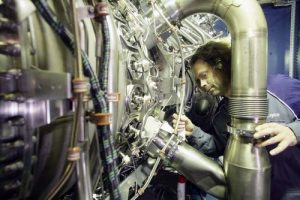British Steel halts plans to axe thousands of jobs

British Steel has announced it has ended its redundancy consultation, safeguarding more than 2700 jobs in Scunthorpe.
The announcement came after the company officially withdrew the HR1 consultation form it had submitted to the Department of Business and Trade on the 27 March.
The move is part of ongoing efforts to stabilise British Steel’s blast furnace production following the government passing the Steel Special Measures Act in April.
Lisa Coulson, interim chief commercial officer said: “This has been a difficult and worrying time for British Steel staff and their families. I can however confirm that we are closing the redundancy consultation without action.
“Since the Government passed its legislation, we have been working day and night to ensure we are able to stabilise our operations. The work done to secure the raw materials we need for both Queen Anne and Queen Bess blast furnaces means we are able to run both continuously.
“We would like to thank our trade union partners for their professionalism and the support of their members over recent days and weeks.
“And I would also like to thank everyone in our workforce for their extraordinary dedication over recent days and weeks. It is your hard work and passion that means steelmaking in Scunthorpe has a bright future.
“Quite simply, British Steel workers are the finest in the world.”
Jingye announced back in February that it was launching a consultation which could lead to the closure of its two blast furnaces threatening between 2,000 and 2,700 jobs.
The company said the blast furnaces are “no longer financially sustainable” and it was losing around £700,000 a day. Jingle had also stopped sourcing raw materials to keep the furnaces ablaze.
in an unprecedented move, MPs were called back from their easter recess to vote on new laws to stop British Steel’s Chinese owner, Jingye, from closing the two blast furnaces at the Scunthorpe site.
While stopping short of full nationalisation, the new laws gave the government the right to buy the raw materials needed to keep the furnaces going while it seeks a private buyer.
Jingye has stopped sourcing raw materials to keep the furnaces ablaze. After the legislation was passed, it was reported that officials from Jingye were blocked from entering the British Steel site by workers, with the GMB union saying the employees were ‘legitimately concerned about sabotage’.
In a race against time, the government successfully secured the raw materials to keep the furnaces burning. This meat the previously planned ‘salamander tap’ of one blast furnace, Queen Bess, would no longer go ahead.
The Scunthorpe blast furnaces are the last ones in the country after the Tata Steel owned site at Port Talbot was closed. The UK’s ability to make virgin steel is of vital national importance and is seen by business leaders as pivotal for the country’s future defence and security, especially with the current turmoil in the geo-political world.
If the two British Steel furnaces were to have closed, the UK would be the only non-steelmaking country in the G7.









